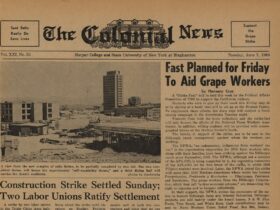A redesigned website now offers access to hundreds of freedom petitions brought by enslaved people in Washington, D.C., in the first half of the 19th century. The site—O Say Can You See: Early Washington, D.C. Law and Family—showcases the diversity of strategies that black people living in D.C. used to gain freedom through the courts in the antebellum period.
Many of these freedom cases were previously difficult to access, since a major source used in writing the legal history of the U.S. Court of Appeals for the District of Columbia Circuit has been the case reports of William Cranch, who served as chief justice of that court from 1806 to 1855. “Cranch excluded the last names of nearly all African-Americans,” William Thomas, a historian at the University of Nebraska–Lincoln who headed the team that put together the website, explained to me.
Working at the National Archives a few years ago, Thomas came across an index of court cases called Black Washingtonians, which had been put together by archivists working from original case documents (rather than Cranch’s summaries). Looking at the index, Thomas realized how much more information was available.
The site offers access to those primary documents. Browsers can explore it by looking at a group of annotated cases; by checking out stories of families who petitioned the court over several generations; or by picking a single person, like lawyer Francis Scott Key (yes, that Francis Scott Key), and looking at their connections to other people in the database.
People doing genealogical research can search for family names. As the site’s team adds more documents from civil and criminal cases in the coming year, its usefulness for researchers looking to fill in their family histories will expand.



